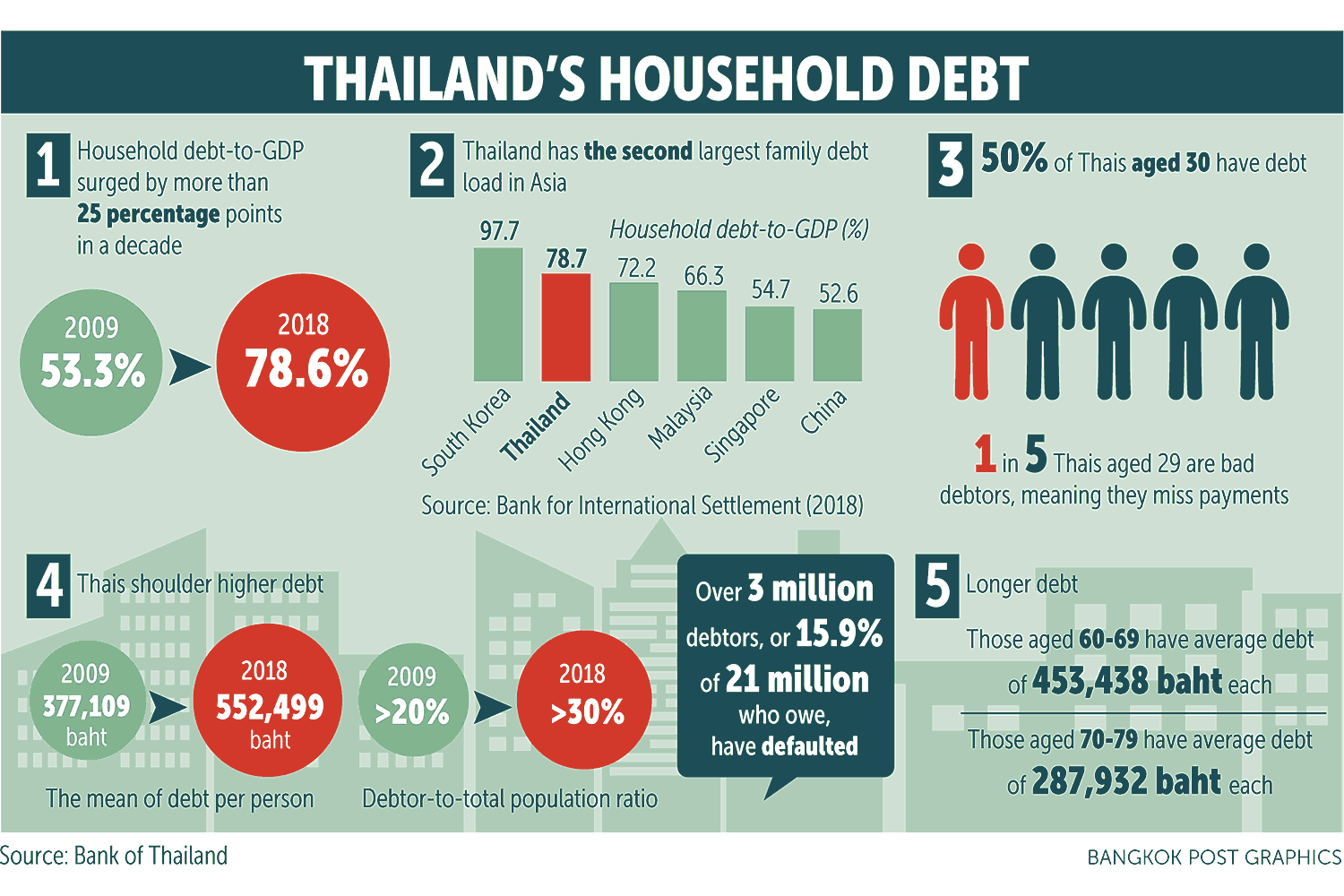Thailand: BoT, bank association to sign pact on responsible lending
The Bank of Thailand and the Thai Bankers’ Association plan to sign an agreement on five directives for responsible lending, including debt-service ratio (DSR), to take effect from next January.
The guidance is aimed at keeping a lid on the country’s swelling household debt, which is a threat to financial stability.
The five directives entail taking borrower’s debt repayment ability and residual income into account when lending, providing clear information about financial products and refraining from tempting people to run up excessive debt, setting fair contracts with customers, developing and designing products that fit well with customers, and cultivating an organisational culture that is concerned with impacts on customers.
A memorandum of understanding is set to be signed on Aug 13, while the central bank’s public hearing on the matter is scheduled to remain open until the end of this month, said Wajeetip Pongpech, assistant governor of the financial institutions policy group.
Such practical guidelines are not mandatory, but they should be applied by financial institutions to avert pressure from the social sector, she said. Sustainability is the key to doing business and operators should be concerned about environmental, social and governance factors, said Ms Wajeetip.
According to the central bank’s paper on DSR, it has requested banks and subsidiaries reduce the ratio of new consumer loans extended to vulnerable groups with a high DSR by at least 10% per quarter for four quarters, starting from the second quarter.
The guidance covers all types of consumer loans, with the exception of mortgages, as the central bank implemented a loan-to-value rule governing mortgages starting in April. The central bank is prioritising vulnerable borrowers whose monthly income is 30,000 baht or less, with a focus on first-time workers, Generation Y and the elderly.
According to the retail loan guidance, the DSR cap for vulnerable groups is set at 70% of income. The central bank is also in the process of standardising DSR to apply to all consumer loan applicants.
Ms Wajeetip said practices that banks should avoid are setting loan growth targets as a criteria in employees’ key performance index evaluation, charging cheap interest rates during introductory periods, and offering larger loan amounts than borrowers need.
Other undesired lending practices include loan approvals based on debt collateral instead of debt burden and overall income sources, and focusing on loan approval speed for auto titles and home equity loans as they could pose risks to borrowers, she said.
The central bank is also focusing on borrowers’ residual income, in addition to debt payment ability, under the responsible lending concept.
The guidance would be an instrument to strengthen the overall financial stability and taper household debt. Thailand had the second largest household debt in Asia after South Korea.
Thailand’s family debt load was 78.7% of GDP at the end of March, rising from 53.5% in 2009.
The central bank found Thailand has 21 million borrowers, of which more than 3 million are debt defaulters.
Source: https://www.bangkokpost.com/business/1725187/bot-bank-association-to-sign-pact-on-responsible-lending


 English
English




